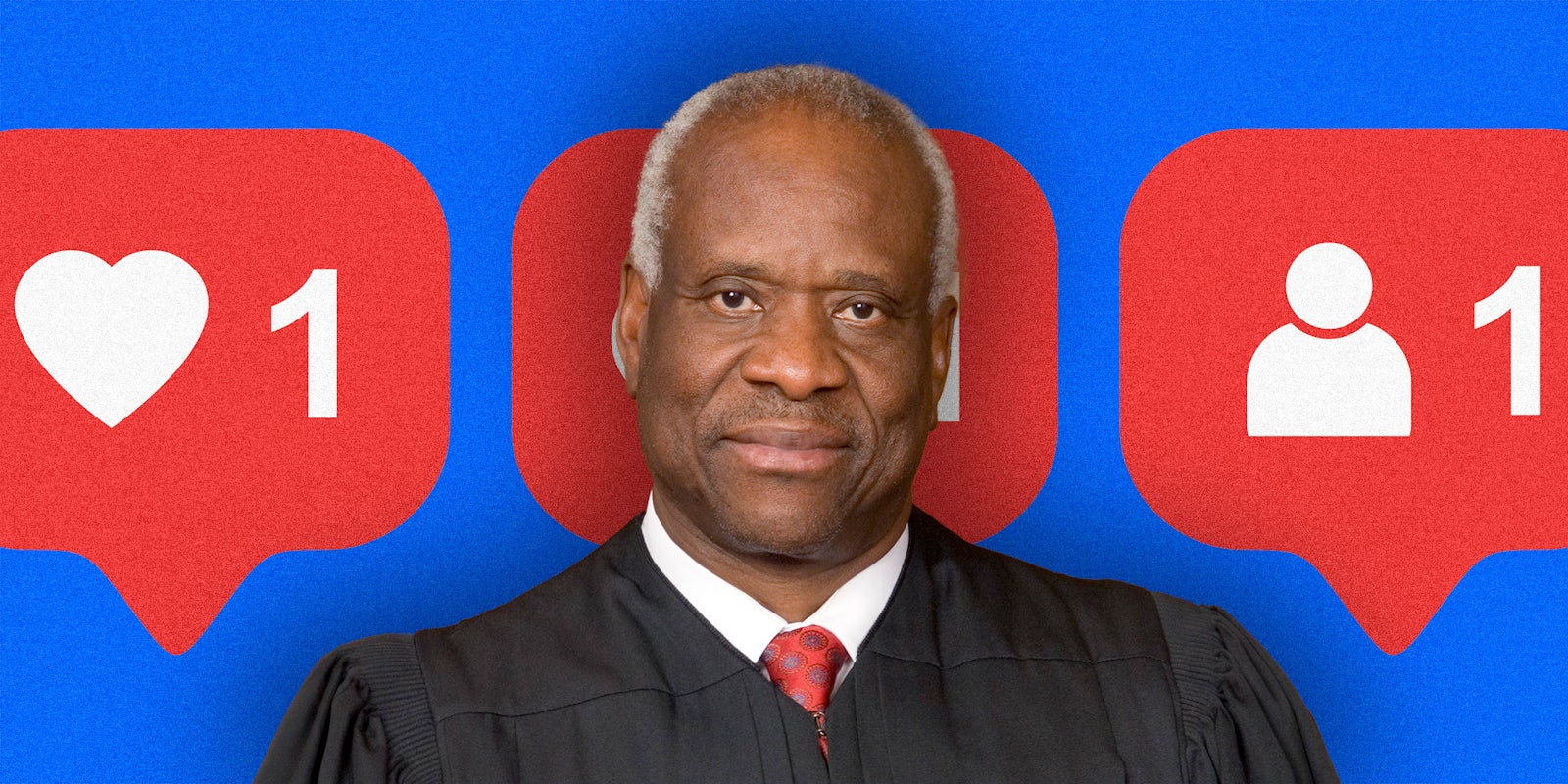Supreme Court Justice Clarence Thomas has indicated the strongest support on the court to date for stripping some of the world’s largest internet companies’ rights to police content on their sites.
These platforms have been in the right-wing crosshairs for years. They often claim that companies are biased against them and are suppressing the speech of conservatives like Rep. Marjorie Taylor Greene (R-Ga.). Members of Congress have echoed the same, and numerous conservatives have sued over their suspensions.
If they ultimately get their way, companies like Twitter, Facebook, Google, and Amazon would be required to reinstate the accounts of users they’ve banned, such as Alex Jones, Laura Loomer, and former President Donald Trump. They have long argued that these platforms essentially amount to the public space, and thus they should be prohibited from censoring speech.
In a concurring opinion in the case against Trump about whether he could legally block people on Twitter, which the court ordered dismissed as moot, Thomas indicates that he supports such a move.
Much of his argument boils down to assessing that Twitter, Facebook, Google, and Amazon should be deemed “common carriers” or public accommodations because they exert control over such significant amounts of speech online.
Much like the government can’t ban you from driving on I-95 because you prefer the right lane, social media sites can’t ban you for posting content they deem problematic.
Common carriers are broadly required “to serve all comers,” so designating them as such would significantly reduce their right to ban people and content from their sites.
Thomas is unpersuaded by the arugment that these are a few out of millions of websites and dozens of social media platforms, so people banned from one can simply join another. In his view, their sites are like interstate highways for information and speech, and requiring someone to use an alternative means is like requiring them to take a footpath instead. In other words, he thinks that alternates like Gab and Parler aren’t sufficient substitutes.
…[W]hat matters is whether the alternatives are comparable. For many of today’s digital platforms, nothing is,” he wrote.
He invites Congress to intervene.
“If the analogy between common carriers and digital platforms is correct, then an answer may arise for dissatisfied platform users who would appreciate not being blocked: laws that restrict the platform’s right to exclude,” Thomas wrote.
Thomas also argues that the companies may provide public accommodation, which would subject them to laws governing such.
Historically, public accommodation only applied to physical locations—hotels, restaurants, entertainment venues, etc.—but more recently some courts have split on that definition.
Noting that no party to the instant case argued that public accommodation restrictions apply, Thomas seems to invite a future case making just this argument.
“Once again, a doctrine, such as public accommodation, that reduces the power of a platform to unilaterally remove a government account might strengthen the argument that an account is truly government controlled and creates a public forum.
“But no party has identified any public accommodation restriction that applies here.”
Many noted with great interest that in the footnotes, he also cites an argument that Section 230 of the Communications Decency Act, which provides immunity to companies for content on their sites, potentially violates the First Amendment.
Some pointed out that requiring companies to host speech effectively reduces their own free speech rights.
Thomas is possibly the most reliably conservative member of the Supreme Court. Today’s opinion aligns him with some of the more fringe elements who want to curtail private social media companies’ rights.
Slate’s Mark Joseph Stern tweeted, “I am confident that Clarence Thomas’ rallying cry for legislation overriding social media companies’ First Amendment rights and forcing them to host speech is *entirely* about right-wing fears that Twitter, Facebook, etc. are censoring conservative speech.”
It should be noted that Thomas’ wife, Ginny, is an avid conservative poster.


